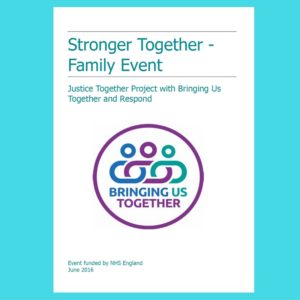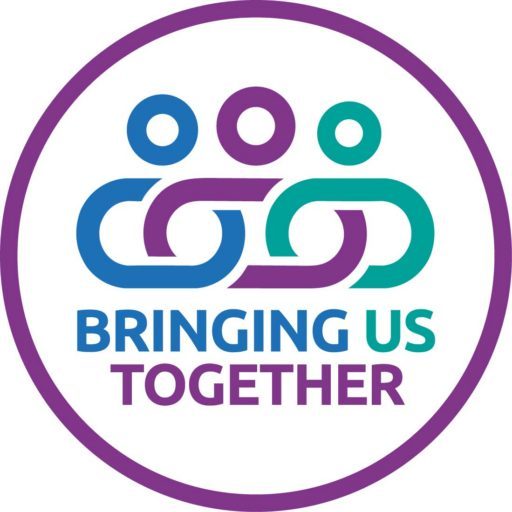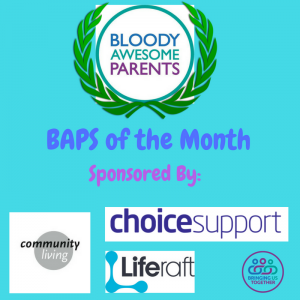What are the challenges in the system [3]
How do children with Autism and/or Learning Disabilities described by their families using words like “loving, kind, caring, funny, gentle giant, sense of humour, makes me laugh” end up in crisis and within the setting of an Assessment and Treatment Unit?
What are the Challenges in the System?
We brought families together and asked them.

Stronger Together
Over the last few days, we have looked at the following challenges in the system
- Social Care and Local Services
- Special Educational Needs issues
- Personalisation
- Legal Support and Information
- Parents seen as the problem
- Fuller (non-medicalised) understanding of Learning Disability and Autism
- Concern over the use of the Police and Criminal Justice System
- Health and Emotional Wellbeing
Today we want to look at the following challenges:
- The complaints system
- Care & Treatment Reviews
- Medication
- Staffing and Assessment Treatment Units
- The Discharge Experience
The complaints system
- Families are mostly not informed of their rights or of any process for complaining
- The difficulty in knowing who to complain to and who has ultimate responsibility
- Families do not know of a clear process for complaining against specific professionals such as the psychiatrist
- Families who do want to complain fear reprisal against their family member whilst they are incarcerated; they sense a huge imbalance of power
- One of the most common themes was that “families do not feel listened to”
- Families given no guidance or advocacy around the complaints process; they are aware that a huge amount of energy and resilience is needed to go down a complaints procedure and it can be very time consuming
- A Lack of independent advocates to help parents and families through these complex and stressful processes
- Parents having to research how to complain
- PAL’s: at first they had little understanding, however once they listened they were very supportive and attended several meetings
- Long processes regarding complaints and having to jump through too many hoops with little support for families already drained by their personal experiences.
“I started the complaint last September regarding the psychiatrist and lack of care, and using antipsychotic drugs without knowing my son. I have not got as far as the mediation meeting yet, this is next month. They have not agreed with anything I have complained about so I am not sure how far I can take it. Ombudsman?”
Recommendations
- Ensure families are provided with information about how to complain
- Support for families going through a complaints process and guidelines for families developed that includes signposting for legal information, resources and advocacy
- Where necessary NHS should fund mediation
Care and Treatment Reviews
- Some parents were unconvinced that their young person’s history was carefully pulled together and considered as part of the understanding of the person and their current situation (e.g. trauma history)
- Families often felt excluded, or at least unsupported to take a full part in the CTR process
- Some families experienced bias and inconsistency regarding how issues were documented. One described their loved one who has learning difficulties speaking extensively at their CTR about something that was of huge concern to him, yet none of this was minuted.
- Families often felt that they were seen as part of the problem, rather than part of the way forward, and so not listened to as a result.
- To actively include families (particularly nearest relative) in all plans and decisions connected to their family member with a learning disability. This includes making information accessible and clearly explaining any professional language or abbreviations
Recommendations
- Follow the NICE guidelines, the NHS England recommendations and other such guidance available.
- National Valuing Family Forum are putting together Gold Standards to be used
- The CTR report should have a timescale attached to it for actions contained in the report. These timescales are currently determined by the team, families ask that they remember there are vulnerable children and young people involved and three months can seem a very long time to a family in crisis.
- Ensure all Care and Treatment Reviews include an Expert by Experience, a Commissioner and an Independent Clinical Expert
- Clearer adherence to existing protocols on the conduct of CTRs in particular on the recording and communications of decisions made and actions to be taken
- An effective audit approach to analysing CTR and CPA reviews to inform an understanding of strengths and development areas against best practice standards/policy and guidance
- Providers should be accountable for actions generated through CTR and external scrutiny is needed to ensure these are completed.
Medication
- Many families felt that medication was introduced often in the first instance and not, as NICE guidelines recommend, as a last resort following interventions which were developmentally based and person-centred.
- The Responsible Clinician – often the Psychiatrist – was viewed as having too much power and parents often felt not listened to when it came to views on medication.
- Most felt that medications were over-used and at too high dosages.
- Some felt that medication was being used as a restraint (inappropriate) and needed more careful monitoring and reviews.
- Parents wanted support to challenge this use of the ‘chemical cosh’ which goes against NICE guidelines.
- Some said that their young people had never experienced medication until they entered an ATU.
- Medication being used as restraint and as a punishment. Many parents voiced serious concerns regarding the forms of restraint used, particularly around prone restraint, which some said should be banned as an inhumane practice.
Recommendations:
- Alternatives sought rather than medication
- Where possible to have a meeting just about medication with the professionals, young person and the family to talk about the pros and cons. Route to come off the medication clear at the start
- Regular reviews of medication as above
- Awareness of NICE Guidelines amongst professionals, services and family members
Staffing and Assessment Treatment Units
- Various concerns regarding the nature of the agencies offering these assessment and treatment models. Many mentioned a consistent sense of underpaid and under-trained agency staff, working in organisations driven primarily by profit. The whole funding process was seen as being complex and opaque, with little sense of who was accountable.
- A serious inconsistency around the following of care plans; communicating with families on issues and challenges; training on routines, behaviours, Makaton etc.
- One very common theme was the young person being placed in a unit miles from their home and community – as there is no local service available – and
- then parents having to pay for their own travel costs to see them for often very short periods of time.
Recommendations:
- If a decision is made that, as a last resort, someone with a learning disability needs to be detained under the MHA a long way from their family. Provision must be made for the family to have their costs for regular visits recompensed in an easy and timely way.
The discharge experience
- Lack of realisation that the person may be suffering from post-traumatic stress disorder and that therapy should be offered by specialist services
- Hospitals should work more closely with community teams and social care; sometimes there appears to be no link-up at all
- Often there is no person-centred plan either to inform the persons care or their discharge. More workforce training in person centred planning is needed
- Individuals leave hospital with a lack of a personal budget or financial control due to the heavy focus on a placement and the step down pathway.
- Lack of information about the possibility of a capital fund if people have been detained for a period of time
- Lack of knowledge by commissioners, professionals and families about suitable providers who could set up the right tailor-made provision
- The discharges that were described in more positive terms did have skilled, independent advocates supporting the family
- One comment was “They go in with autism and come out with personality changes, mental health issues, poor physical health issues, weight issues, no education and with post traumatic stress disorder”
- Some parents mentioned the renewed sectioning of their young people – without thorough reviews – which then delays their discharge further
- Some also mentioned the discharge being regularly delayed because professionals were now highly risk averse, and being in the mind-set of ‘hospital being the best place for everyone’s safety’
- It was felt that no understanding or priority was given to the young person having regular access to their own home whilst in the ATU, so they remember where they are returning to (if appropriate)
- Lack of action by Local Authorities to set up support ready for discharge.
- Some young people missed the staff and familiarity of the ATU, with no thought given to these kind of transition issues.
- It was identified by some parents that any new providers needed to be involved with the young person and family prior to discharge, although this rarely seemed to happen appropriately
- Funding around housing etc. takes months. Independent person to set up local services.
- A list of local providers, vetted by parents would be useful.
- Housing officers in LAs who know about deputyship and supported tenancies
- Parents identified a need for properly pooled budgets so that there is no reluctance to discharge into the community because social care don’t want to/ can’t pick up on costs
- Ensuring that for a young person moving into adult services on discharge has education services in the framework
- Potential providers need to be sent a very clear detailed pen picture of the young person and only considered if there is a certainty from all sides that all needs can be met
- The transition plan needs to be very thorough with transport, staff shadowing, visual timetables and staff photos all part of preparation process
- The added major complexity of bringing the young person home suffering from post-traumatic stress, mental health issues and physical health problems due to the time spent in ATU and impact of medication.
- Nothing in the community once the young person is home.
Recommendations:
- Make sure the individual has access to their real home on a regular basis so that they remember where they are returning to – if that is what the adult and family want
- Take into account if the young person has turned 18yrs old chronologically but if their development age is a lot younger – and be creative in involving, communication and mood, observing behaviour etc
- Meet the needs of the loved one – then sort out the funding. Parents and carers should not be working about where the funding is coming from. Pay someone to be responsible for sorting the detail of the funding issues, separate from the discharge/best interest decision
- An independent person to liaise with local housing providers and services to ensure effective timescales
- Potential providers need to be sent a very clear and detailed pen picture together with a Person Centred Plan. Only assessed if 100% sure that needs can be met. Too many assessments are unsettling.
- Consistent Transition Plans to be very concise with transport, staff shadowing, inductions, visual timetables and staff photos all part of preparing the young person using social stories
- New staff spending time at ATU and with family before the move
- Lists of local trusted providers vetted by parents would be useful Housing officers in LAs who know about deputyship and supported tenancies
- Much more workforce training in Person Centred Values and planning
- Have organisational budgets that are properly pooled so that there is no reluctance to discharge into the community because social care do not want to or can’t pick up the funding commitment
 Stronger Together: This is a report from our weekend with families. It talks about what families thought the issues were, it also looks at the possible solutions and recommendations from families.
Stronger Together: This is a report from our weekend with families. It talks about what families thought the issues were, it also looks at the possible solutions and recommendations from families.
Next Event:
We will be holding another event for families in June. To find out more, click here
Mum to three great kids, each with a different SEN.
Transplanted from the NW to the SE.
Co-founder and Director of Bringing Us Together







